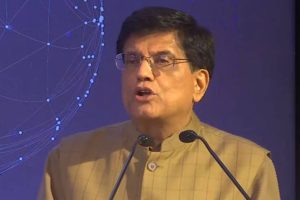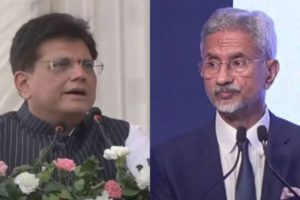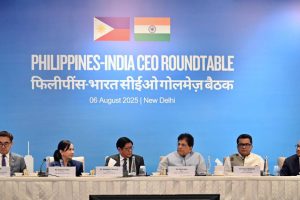Commerce and Industry Minister Piyush Goyal on Monday called China’s rare earth export restrictions a “wake-up call” for the world, asserting that India is actively working to create resilient and trusted supply chains to reduce dependency on Chinese sources.
During his official visit to Switzerland, where he met government officials and business leaders, Goyal acknowledged the short-term impact of the export curbs, especially on India’s automotive and white goods industries. However, he underscored that the crisis presents an opportunity for India to enhance domestic capabilities and deepen international collaborations.
“This situation serves as a wake-up call for all those who have become over-reliant on certain geographies. The world needs trusted partners in the supply chain, and India is ready to play that role,” Goyal told reporters.
He outlined a multipronged strategy to mitigate the crisis, including:
- Ongoing diplomatic efforts through the Indian embassy in China
- Identification of alternative global sources for rare earths
- Boosting the capabilities of Indian Rare Earths Limited to increase domestic production
The automotive sector, heavily reliant on rare earth magnets for vehicle components, has appealed to the government for expedited approvals to continue imports from China while alternatives are developed. China currently controls over 90% of the world’s magnet production capacity, making its restrictions — effective April 4 and requiring special export licenses for seven rare earth elements — a significant disruption.
“There are clearly issues around the suspension of permanent magnet supplies from China to India, which will particularly affect our auto sector and several white goods manufacturers,” Goyal explained.
He added that Indian companies are responding proactively by partnering with domestic startups and innovators to reduce reliance on imports. “They are showing willingness to fund innovation and adjust pricing to speed up local development.”
Goyal also pointed to a shift in mindset within Indian industry, moving beyond reliance on government subsidies. “Indian businesses are becoming bolder and more self-sufficient,” he said, while also hinting at the possible role of production-linked incentive (PLI) schemes to further support strategic sectors.
Highlighting India’s advances in rare earth alternatives and emerging technologies, the minister expressed optimism that India will turn the crisis into a long-term strategic advantage. “We are all working as one team — government, industry, and startups. While there may be challenges in the short run, we are confident we will emerge as winners,” he concluded.
Goyal reaffirmed India’s position as a trustworthy and dependable partner in global supply chains, particularly in the context of rising concerns over concentrated geopolitical risks.





